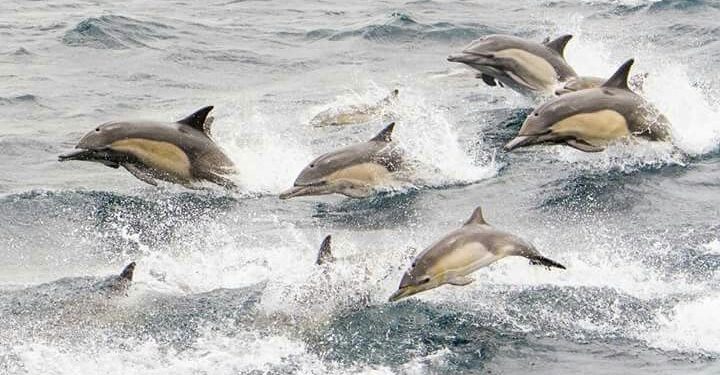Jakarta, Indonesia Sentinel — Dozens of marine mammals have been found dead following last month’s Russian tanker oil spill in the Black Sea, a dolphin rescue center reported on Sunday (January 5). Authorities are currently race to contain the environmental disaster to prevent further widespread impact.
According to AFP, the oil spill occurred on December 15, 2024, when two aging Russian tankers were caught in a storm in the Kerch Strait, which connects Crimea and southern Russia. One of the tankers sank, while the other ran aground, releasing approximately 2,400 tons of heavy fuel oil, known as mazut, into the surrounding waters.
The Delfa Center, a Russian organization focused on rescuing and rehabilitating dolphins, reported discovering 61 carcasses of marine mammals since the incident. Of those, 32 were “most likely” killed as a result of the oil spill.
The affected mammals include cetaceans, a group comprising whales, dolphins, and porpoises. The center noted that most of the fatalities were Azov dolphins, a type of porpoise closely related to beluga whales.
“Judging by the condition of the carcasses, it is likely that most of these cetaceans died within the first 10 days after the disaster,” the Delfa Center said in a statement, as cited by AFP.
Mitigations Efforts
On Sunday, Russia’s Ministry of Emergency Situations stated that efforts to clean the contaminated waters were ongoing, but strong winds and waves had pushed oil slicks onto multiple shorelines. “More than 68 kilometers (42 miles) of coastline have been cleaned,” the ministry reported.
In a follow-up statement, the ministry said two new oil slicks had been detected—one off the coast of the Anapa resort and another in the Kapsel Bay. Russian news agency TASS reported that one of the slicks stretched over two kilometers.
Hundreds of volunteers have been deployed to remove contaminated soil from beaches in Crimea and along Russia’s southern coast.
Metal Ring Falls from Sky in Kenya, Sparks Doomsday Fears!
Authorities warned that the type of heavy fuel oil involved in the Russian tanker oil spill is particularly challenging to clean, as it is dense, heavy, and does not float on the water’s surface.
Environmental groups have expressed concern about the long-term ecological damage caused by the spill, including harm to marine life and coastal ecosystems. Clean-up operations are expected to continue for months as officials grapple with the full extent of the disaster.
(Raidi/Agung)


























